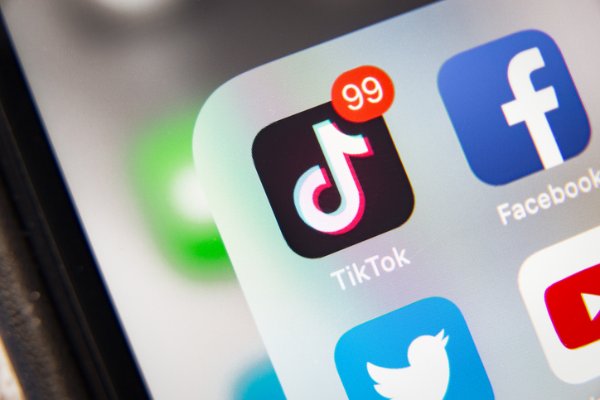Should Specialty Makers Invest in TikTok Despite Potential Ban?

Last week, The House of Representatives passed H.R. 7521, a bill that would make it illegal for TikTok or its parent company ByteDance Ltd. to operate within the U.S. unless the parent sells TikTok to a buyer that satisfies the U.S. government.
As of February 2023, TikTok boasted a community of over 150 million American users, according to a statement from the company, with other sources estimating its active user base to be upwards of 170 million. Due to the sheer number of specialty food-related brands, retailers, and content creators on the platform, the proposed bill is likely to affect how industry stakeholders market their products.
“The proposed legislation itself has already begun to impact the specialty food industry and make brands apprehensive about investing in TikTok. American brands don’t want to ‘waste’ time and money on a platform if there is a chance that it will soon be removed,” snack influencer and digital strategist Dre Pao (@DrePaoOfficial) told SFA News Daily. Pao helps specialty brands leverage social media to foster brand engagement.
“In the meantime, it seems that a lot of American brands are investing more resources into Instagram and are waiting to see what the future of TikTok will look like. The result is that many brands and content creators that rely on TikTok are losing potential income,” he said.
Despite the uncertain outlook, he advises brands to continue investing in their TikTok strategy.
“Yes, we need to be cautious about where we choose to invest our time and energy, but we should also not completely abandon where the attention is,” he said. “Even with this proposed legislation, consumer attention is still strongly focused on TikTok.”
The controversial bill must still be passed in Congress, and then signed by the sitting president before going into effect.
"If they pass it, I'll sign it," said President Joe Biden, according to a report from Reuters.
Proponents of the bill contend that the Chinese government can demand access to TikTok’s data on American consumers, threatening U.S. national security, reports AP News.
TikTok CEO Shou Zi Chew responded to the House’s decision, affirming that the company has invested in protecting user data and ensuring users are free from “outside manipulation.”
“We will not stop fighting and advocating for you. We will continue to do all we can, including exercising our legal rights, to protect this amazing platform that we have built with you,” said Chew in a statement.
Food-related social media influencers are feeling the pressure of a potential ban.
Danielle Dubois (@hangryhoustonian) leverages both TikTok and Instagram in her partnerships with national and regional grocers including, H-E-B and Spec’s. Dubois is able to charge more when her posts and videos reach a larger audience across multiple platforms, she told Houston Chronicle. Despite having a larger Instagram following than TikTok, she emphasized that both are important to her business.
“We’re kind of in a weird limbo,” Dubois said. “These brands are going to work with content creators regardless of a TikTok ban. The monetary value may just change.”
Other influencers in the industry are less worried by the implications. Influencer and cookbook author Karli Bitner (@cookingwithkarli) told SFA News Daily that the TikTok legislation will only likely affect the specialty food world “until the creators and audience pivot to another platform.”
Pao agreed with this sentiment.
“The current situation with TikTok is also a great reminder that social media platforms do not live forever,” he said, adding that, while some platforms may be banned, others, like MySpace or Vine may simply fall out of use, or go out of business.
At the end of the day, businesses and influencers that use social media must diversify their community communication strategies. Pao recommends driving engagement to a mailing list, and Bitner said the organic reach on her blog has kept her stress levels down.
“For me, I’ve always had reach on my blog, [first] through Google, Facebook, Instagram, [and] Pinterest, and then TikTok. So, it honestly doesn’t stress me out much,” she said. “If anything, TikTok would be one less thing I would need to keep up with.”
